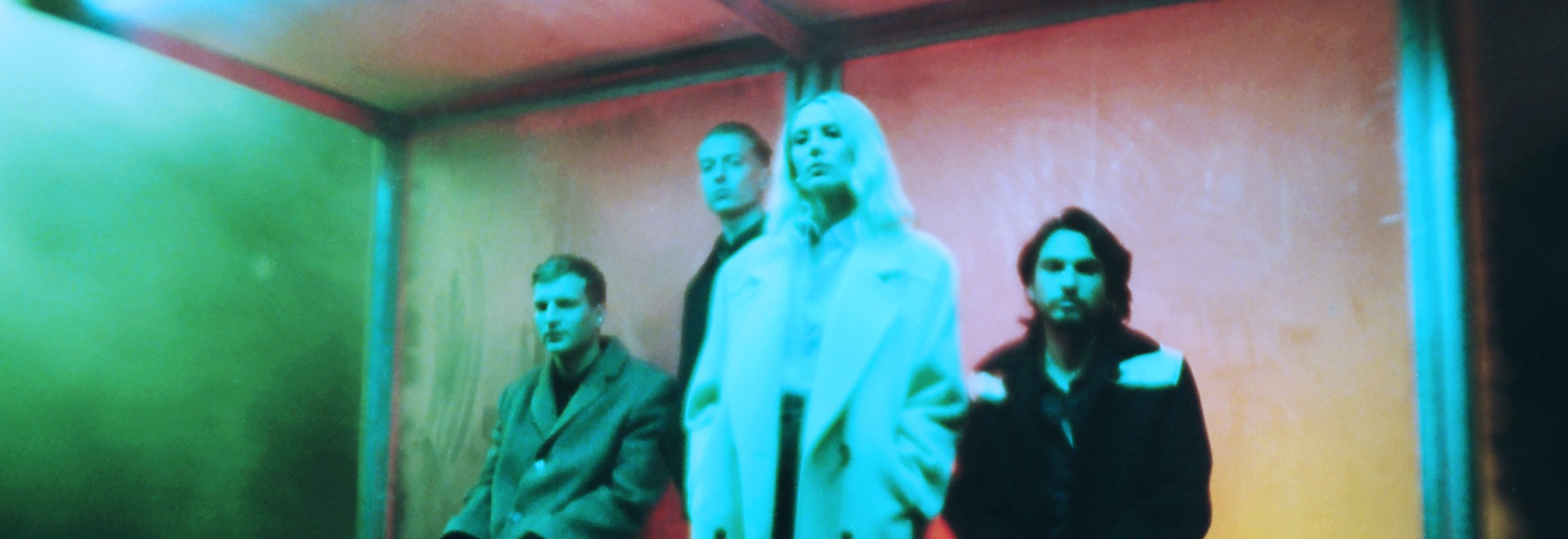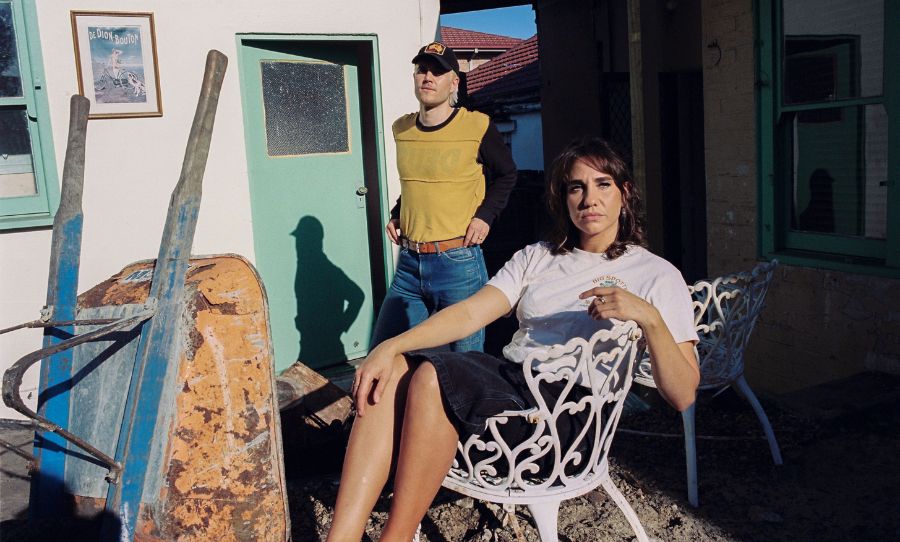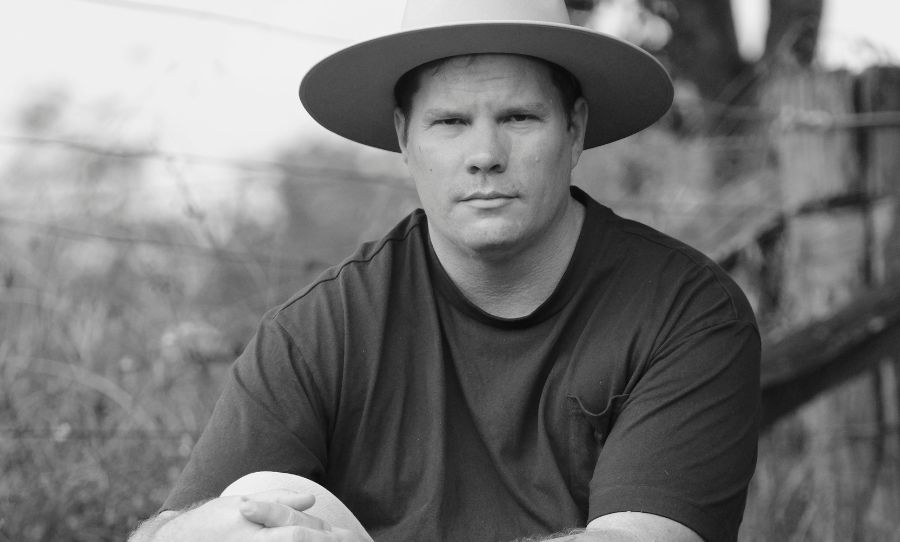Amid an endless landscape of alternative rock and neo-psychedelia, Wolf Alice have staked their claim as a standout of rebels with a simple message.
What’s always made Wolf Alice so special since their breakout success in 2015, was their innate ability to turn everyday life into a work of art. However, on their latest album, Blue Weekend, front-woman, Ellie Rowsell, guitarist Joff Oddie, drummer Joel Amey and bassist Theo Ellis, have refined their art to a cutting, razor edge.
In light of this incredible release, Happy got the chance to catch up with none other than Ellie Roswell, to discuss the creation of art in isolation, and what it means to have a Blue Weekend.
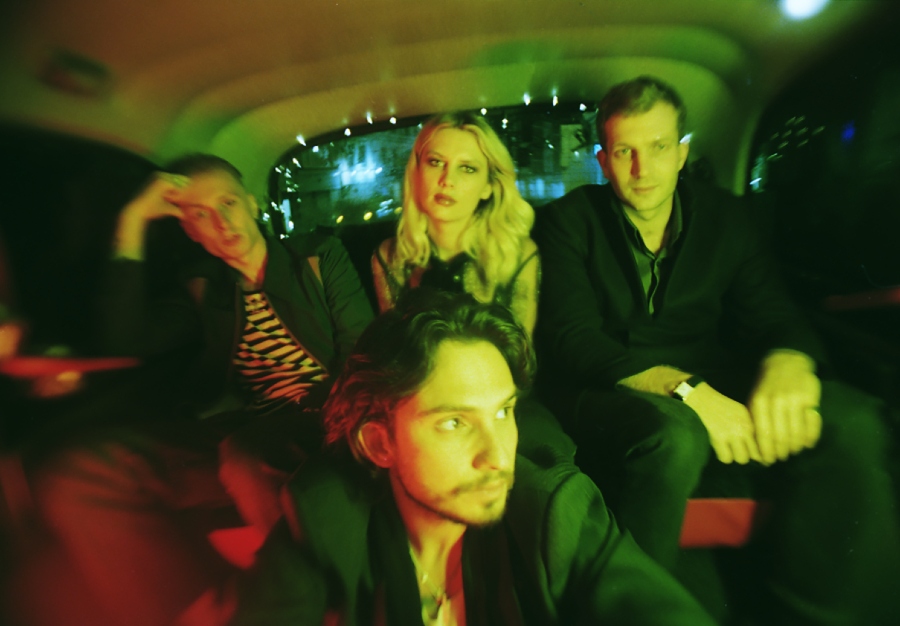
WOLF ALICE: I want to keep my video off, because I just woke up and… I’m a wreck!
HAPPY: No, that’s so valid. I guess I just want to start off… you’ve just woken up, but how’s your day going?
WOLF ALICE: It’s good, yeah!
HAPPY: I just sort of wanted to ask, because there’s so much sonic evolution that I just want to unpack with Blue Weekend that. I just want to know what changed? I can’t put my finger on it.
WOLF ALICE: I think part of it is that we just had more time, which just meant that we could kind of try things that we probably felt like last time that we didn’t have time to try. So that’s probably the boring answer. But I guess like just being more experienced… older, and more experienced. You’ve got more confidence in like, your kind of foundations of how you work. It’s… I don’t know… experiment a little bit, and yeah. Don’t know really.
HAPPY: Yeah. You’re right. I might be projecting here, but I feel like there’s so much catharsis in Blue Weekend. And I’m just sort of wondering, what actually went into the process behind it, I guess?
WOLF ALICE: Well, I think because some of the some of the songs are quite sad… we always… if there’s too much sadness and seriousness on the album, I feel like we always try to leave it on a kind of more hopeful note, because otherwise… we don’t want to bum people out too much, you know (laughs).
So there’s always that kind of intention to not kind of make everything like a hundred per cent miserable, and to leave a kind of hopeful note. I do think we always kind of have that in mind. And secondly, I guess some of these songs are quite simple, and they like really rely on capturing the kind of emotional feeling, rather than like us showing off like what we can do. It’s more like, ‘can we capture this feeling?’ And I think if you can capture it, yeah, it feels good to listen to it or to play it. Yeah.
HAPPY: Yeah. I guess I was reading that Blue Weekend was created outside of that space of touring. How does being able to have that introspective isolation in a way, affect the sound, and affect the vision that you’re trying to go for?
WOLF ALICE: It was really strange to be honest, because like on one hand, it was really great to have a… to be afforded more time to make this, because there was no touring on the horizon, so you know, there was nothing to interrupt the process. You know, the pressure was off a little bit, because no one… time went out the window.
We didn’t know when life is going to go back to normal. So there was no pressure to finish things quickly, and that just meant that we could go over things and perfect things. And as I said before, kind of experiment more. But I also think, on the other hand, that was kinda detrimental – maybe not to the music, but to our… probably emotional and mental wellbeing. Because, you just kind of go down the rabbit hole where you just, you know… there was nothing else to really distract ourselves from making this album, so we kind of probably put a lot on this album, which I mean, you know, it became too important (laughs).
And also, yeah, you know, there’s, you know, having an abundance of time is great. But then it’s also quite difficult to know when to stop. And you start to like, yeah, no, just… I always say you stop being able to see the wood from the trees and… you know, when you make a record, you have to have some kind of destruction. So, you know, we recorded it in Belgium so that we would be away from home… could probably focus, and immerse ourselves, and experience. But it was close enough for us to be able to go back. You know, it’s just nice to be able to on the weekend, you know, take your mind elsewhere. Go and have a few drinks. But when you can’t do that, it’s like… quite intense.
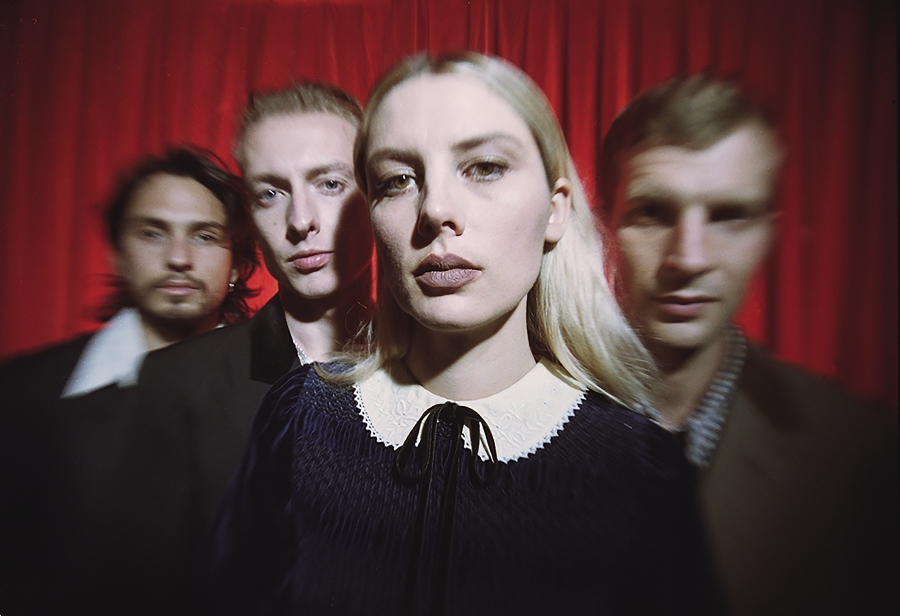
HAPPY: Yeah. Because I think it definitely has that pandemic feel to it without being like, you know, one of those ‘pandemic albums’.
WOLF ALICE: (Laughs) Yeah, I don’t know, I can’t hear that really, but I’m kind of glad if that’s true because it was recorded throughout that pandemic. It kind of, I guess, puts a little bit of a marker of time on it.
HAPPY: I just… I think it’s interesting how you talk about constantly refining and perfecting, and without sounding like a Pinterest blog post, would you say you’re were a perfectionist with this album in that sense?
WOLF ALICE: I’m always reluctant to call myself a perfectionist, because I don’t think I’ve ever done anything perfect. If I am, like I’ve failed at being a perfectionist but I do think I am not very, like, I think when something’s really important to you… I find it hard to approach it in a carefree, easy going way because it’s really important. You need to get it right, especially when it comes to something like… as I was saying before, when you’re trying to capture feelings, it’s really hard to know if you’ve done it. So I don’t know, you have to… it’s often not even a very enjoyable experience, because you… it’s really hard to know when it’s right kind of thing. I don’t know. I don’t know if I’m a perfectionist. No, I don’t think so. But I do like to… like if something’s important to me, I’m not very carefree about it, which is a shame probably.
HAPPY: Yeah. I just sort of wanted to ask about Feeling Myself. It kind of made me cry a little bit. It’s different from a regular self-love song in a way. Was that something that you were aiming for, or was it something that just kind of came out?
WOLF ALICE: I didn’t really want to be like… I don’t know. I don’t think I set out to do it. I think I began to do it. Then I was like, ‘what am I doing? Why am I being nice to myself?’ And then I was like… it was the fact that I went to stop, and was like ‘this is embarrassing’, and that made me feel sad for myself. ‘Why can’t I do that?’ So then I then intentionally carried on. But you know, so… yeah, I didn’t start out like, ‘oh yeah. I’m going to do this’. It just happened.
HAPPY: Do you cringe at yourself… like do you look back and cringe at yourself a lot?
WOLF ALICE: (laughs) Yeah! Oh yeah. But like not debilitatingly, do you know what I mean? So far, I’ve looked back, cringe, and shrug it off so far.
HAPPY: There’s been mentions that Blue Weekend centres around maturity. I just sort of wonder, what the next stage might be from here? Is maturity an idea that you would want to carry on with?
WOLF ALICE: I’m happy that you hear maturity. I don’t know… it’s not something I’m like consciously, ‘I’m going to be more mature’. I mean, I’m hoping that was just a natural progression. So I don’t really know how that goes next, or how I go forward. So far, I’ve always just never preconceived what I want to do next. I just kind of do what feels most… what is the most natural and most fun and, you know. I didn’t like to really pre-think too much, because so far, that when it comes to songwriting has never really worked up for me.
HAPPY: How do you write a song?
WOLF ALICE: Well, for me, it depends. Sometimes I’ll be in a room with the other guys and, you know, be throwing around ideas and build from there. Or sometimes I’ll just be at home, and you know, I keep notes in my phone of the things that I think or read or hear, I will write… or like voice memos of memories that I come up with that. And I just build that from my computer, and then I’ll show it to the guys, and we’ll try different formations of that demo and see which one works best.
HAPPY: Yeah, I guess, were you drawing from anything music-wise while you were creating this? What inspired you art-wise while you were writing this in isolation?

WOLF ALICE: I mean, there definitely was! It was kind of written… it wasn’t written in like one bulk of time, so it’s quite hard for me to pinpoint maybe what I was listening to at the time, but like, when we were in the studio, there were a couple of reference points that would come up. Like for me, I think… I mean, I wasn’t like listening to a lot of Kate Bush, but I was definitely inspired at the time by her way of working. Well, I mean, I don’t know her way of working (laughs)
But when I listen to her songs, I was like… I find her very brave, because it’s almost like… Very theatrical, and I think it’s quite brave to be like that, and her voice is, you know, she has a great falsetto, which… it’s almost quite operatic, isn’t it? And I kind of feel like maybe on things like Lipstick on the Glass and stuff… I don’t know if I’m saying this because people said me, but I think probably subconsciously I was like, ‘I want to try singing like that.’ I was listening to a lot of Christine and the Queens, which I think you can hear in How Can I Make It Ok?.
Like, I love her use of backing vocals and of harmony. And she’s very, you know, she’s very pop, isn’t she, and yet manages to stay like a leftfield artist. And I think in the studio, I’m bringing up Lana Del Rey, Ultraviolence, again – you know, she’s a pop artist, you know, but all the instruments and the sounds in the album are kind of organic and rock n roll in a way. And the Rochesters, when it comes to love and heartbreak in a way, and they’re really vocally driven. Like it’s rock, but a lot of still quite folky. Fleetwood Mac again, like they’re a pop band and a rock band and, you know, meet somewhere in the middle, which is like, was a reference point for us. You know, like… how does something be pop, and be organic and stuff?
HAPPY: So you’re very much about the crossover between the embracing of pop structure within alternative scenes now, right?
WOLF ALICE: Yeah, yeah, definitely. I think, like, pop music has always been good throughout the years, but yeah, like maybe like there was a point where, like, stuff that was being spotlighted or was playing on the radio was not great (laughs). I mean, that’s always a little bit the case, but yeah, you can always find it and yeah… like, I don’t know, I love pop music – I always have!
HAPPY: I guess that sort of leads me to my last question of sort of, like, do you have anything else coming up in the future, any sort of visual projects?
WOLF ALICE: Yeah, well, we’ve got loads of music videos coming out. I think like, I’ve always been regretful of that, like when you make a music video, it has to be for the single, because I sometimes think that your songs that might lend themselves to visuals aren’t always just your like three-and-a-half-minute verse, chorus, verse chorus. And so, like, I’d always wanted to make music videos for other songs as well. And we were lucky enough to one have the time, and two to be given the opportunity, and three to be able to work with a really cool music video director… well, artist… really, Jordan Hemingway. So we’ve got 11 music videos coming out, which I think is cool.
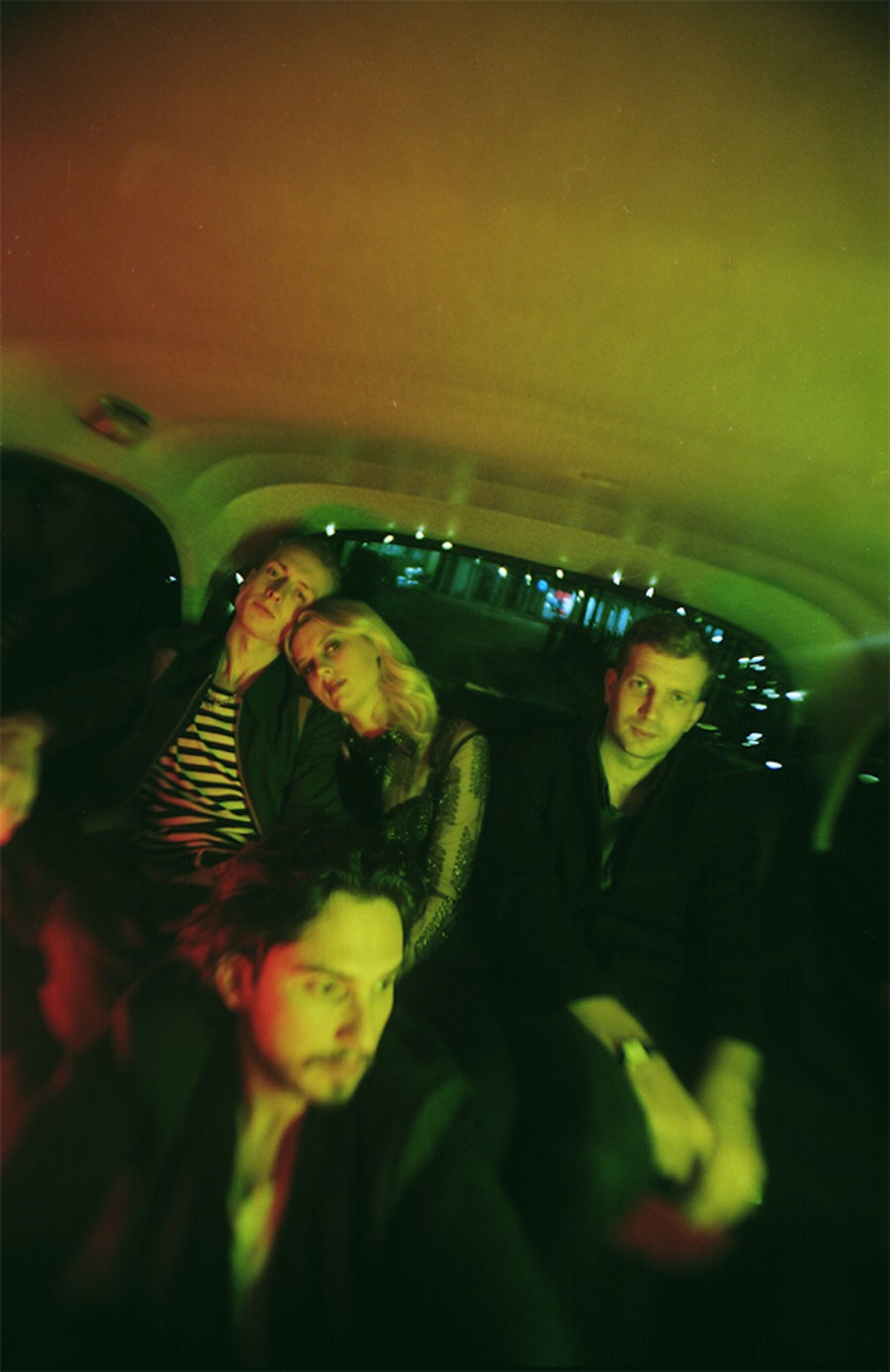
HAPPY: I guess, before we have to go, is there anything that I haven’t touched upon or anything that you want to add in that you think is important?
WOLF ALICE: Oh, no, I don’t think so. Just yeah, no.
HAPPY: Yeah. Thank you for talking to me, by the way.
WOLF ALICE: Yeah. Thank you.
HAPPY: It’s been lovely. I’m sorry I got you out of bed.
WOLF ALICE: No, no, that’s good, I need to… But yeah, hopefully, I’ll see you in Australia one day!
HAPPY: Yes. Oh my God. I hope so.
WOLF ALICE: Have a lovely day!
HAPPY: Make good choices. Bye!
Blue Weekend is out now on all streaming services – so chuck it a listen!
Interview by Mike Hitch
Photos by Jordan Hemingway
